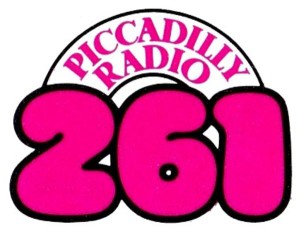
Ask anybody who’s known me for some time and they’ll eventually mention I can talk about broadcast radio a little too much. I think my true anorak tendencies died a few years ago but radio is, to me, the best of all media rolled into one universally accessible package. The best radio sounds like it’s being created for you and, even if the presenters are talking about people who’ve written, emailed, texted (is that even a word?) or called-in, it’s still yours. People on the radio play records for you, they read the news for you and they interview famous people just for you. It’s there when you get-up (and you don’t even have to open your eyes to be part of it) and can be there throughout the day. At various times in the day you pay a little more – or a little less – attention but it can always be with you. You can listen alone or in company, on the move or at home, you can focus and enjoy or it can be your ever-present background.
I grew up listening to the mighty Piccadilly Radio which, with many, many, fewer stations on the dial back then could be heard across the whole of the North West of England. Sure,there was Radio City from Liverpool and, er, Manx Radio, but there wasn’t anything else until you hit some far-off Yorkshire town or even Newcastle, or maybe Wolverhampton if you were heading south. And certainly nothing on my dial that played pop music in crystal clear FM-stereo (I thought this was impressive despite only owning a mono receiver). If the stories are true, ‘Piccadilly, luv’ became shorthand for £2.61 in some northern shops (261 being that crackly medium wave frequency that disppeared when you drove under motorway bridges and was, therefore, not quite modern enough for a ten year old).
You can, no doubt, read in many other places that there was a lot less media back then but the lack of other media isn’t – by itself – that important. To me, the important aspect of that time is that there wan’t anything that a teenager like I was becoming could consider to be theirs. There were no teenage bedroom televisions and only three channels if we could have had them; no connected computers of any sort, gaming or otherwise; no texts or social sites. Books were for libraries and mobile phones belonged on Star Trek or, maybe, Tomorrow’s World. In fact, nothing that was yours aside from a radio or, perhaps, a record player and record players relied on a handful of vinyl you might be lucky enough to own and were not exactly portable. Pop music radio from the BBC was on that crackly old medium wave and we were supposed to like Ed Steward’s Junior Choice. No, for me, interferance-free pop music on 97 MHz.
So for my early teenage years radio became mine, as I imagine it did for millions of others. Pete Baker, Phil Wood, Mike Sweeny, Phil Sayer, Timmy Mallett, Chris Evans, Andy Crane, Susie Mathis, Jim Reeve, Mike Shaft, John Evington, Steve Penk, Tim Grundy, Gary Davies and Dave Ward (along with countless others) became part of our lives; voices that were simultaneously funny, informative and friendly. Piccadilly’s strapline when I first started listening was ‘Your Music & Your Friend’ and it certainly felt that way to my teenage ears.
As with all memories from your formative years, things that once seemed magical are still vivid and I can quite easily remember the excitement: the excitement of the first time I listened to late-night phone-ins using headphones illicitly under the bed covers; the excitement of seeing the DJ’s photographs plastered all over the front of the studio building; the excitement when it was announced Piccadilly was having a ‘Wigan Week’ and we’d see their branded radio car in town and even the excitement of seeing Gary Davies on the Piccadilly road show bus at Haigh Hall. If people are to be believed, rock’n’roll had an effect on a generation in the 50s & 60s, and later, it was Pirate Radio. Today, is it an MTV or something online that people will be looking back at? But for me, Piccadilly is etched in my memory in a way that I find myself recalling snippets like they were yesterday (Susie Mathis’ ‘I’m gonna run, run, run a marathon’ anyone?).
I’m not one of these people that think radio should be like Independent Local Radio (ILR) was back in the late 1970s or early 1980s. The world has moved on. Full service commercial radio of the old style doesn’t have a place anymore but that doesn’t mean that the unique qualities of the medium don’t apply. Despite all the digital, multiple-platform desires of an industry, radio’s ubiquity is its most import asset. Good quality programming still counts. The personal music player (Walkman, Discman or iPod/mp3 player) have been around since the early 1980s. It hasn’t killed the industry yet and, I don’t think it will. Even though I have a computer showing 30+ days of music, I am set here listening to the radio.
I don’t think it’s right to be sentimental about radio. I know that teenagers today aren’t going to have my relationship with radio because their world is vastly different and much more connected but I genuinely believe a cheap device that plays music you like, and can go anywhere, has the power build reationships better than almost any other – except, perhaps, for actually meeting people. And even there, radio can be part of the real-life conversation.
Yes, I can still take along a tranny and listen to my friends (and I really do mean that in the radio sense).